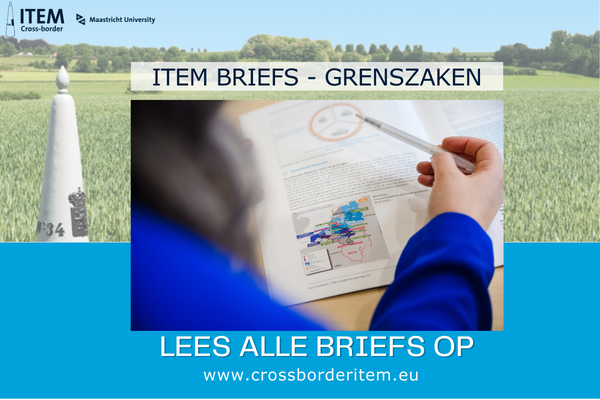Dispute resolution in the Flemish-Dutch border region. Time for a border-regional ombudsperson?

Math Noortmann
Senior Researcher Internationaal en Europees Recht
Last month, four different ‘border disputes’ made the national and regional press. Flemish Minister Zuhal Demir sent a registered letter to the Dutch government, putting the Netherlands at fault for environmental pollution caused by Limburg chemical giant Chemelot (De Limburger of 22.02.24); Zeeland in turn files an objection to the construction of an INEOS plastic plant in Antwerp with the same minister; Noord-Brabant contests the granting of a permit for the construction of a glass factory in Lommel (NRC, 21.02.24); and finally, Maastricht demands compensation in the Hasselt – Maastricht tram line case (De Limburger 25.02.24). Certainly, ‘was sich liebt das neckt sich’ say our Eastern neighbours, but in the case of Belgium aka Flanders and the Netherlands, there may be more to it after all. The question is how to prevent an accumulation of disputes from degenerating into a vulgar, conflictual neighbourly quarrel.
In border (cross-border) regions, the principle of good neighbourliness is perhaps even more important than in relations between states. Border provinces and border municipalities, like ordinary neighbours, can be bothered by each other. They may disagree on all sorts of things: mutual rights and duties, procedures, activities, etc. In most cases, a diplomatic solution is found. Not every Belgian-Dutch border dispute escalates into national or international litigation. The Dutch-Belgian dispute over the demarcation of the common local border between Baarle-Hertog and Baarle-Nassau that was jointly submitted to the International Court of Justice in The Hague in 1957 and the so-called Iron Rhine dispute that was submitted to an Arbitration Tribunal of the Permanent Court of Arbitration in The Hague in 2003 are the exceptions that confirm the rule.
The four disputes mentioned above appear to be escalating: Zeeland is hinting at an appeal to the Belgian Council of State, Maastricht is threatening to “take legal action”, Flanders is “effectively putting the Netherlands in default”, and North Brabant is “repeatedly” objecting to building plans in Flanders. According to the NRC, the “strained relationship between southern provinces and Belgium comes under further pressure”. Why can’t these (border) disputes be resolved through negotiations and other ‘diplomatic’ means? Repeated administrative objections and threats of litigation can be counterproductive and further complicate a solution. What is going on in our Flemish-Belgian-Dutch border region? Is the intensity of disputes between Flanders and the Dutch border provinces and municipalities indeed higher than in other border regions? Are administrators and communities in this border region less tolerant than neighbours in other border regions; e.g. Netherlands-Germany or Belgium-France? Or do they lack the diplomatic capacity and/or specific dispute resolution tools that can prevent escalation?
Belgian-Dutch border disputes are certainly not new. Whether it is about drawing borders in the Meuse or deepening the Scheldt, not flooding the Hedwig polder, the ‘Fyra debacle’, or the Terneuzen sea locks. More than 10 years ago, NOS noted that “these border disputes are actually more matters between Flanders and the Netherlands”. Actually … they are more matters between Flanders and its individual sister provinces in the Netherlands or perhaps between border municipalities. If the four recent disputes are a reflection of rising tensions between public and private stakeholders in the Flemish-Dutch border region, and if disputes and conflicts are going to undermine good neighbourliness, trust and cooperation in the border region, and if escalation is going to be the standard response, then it might be time to start thinking about setting up a permanent dispute resolution mechanism for the border region. One might think of a permanent border-regional mediation body or a border-regional ombudsperson. Or….. we can wait for a new international court case, of course.

